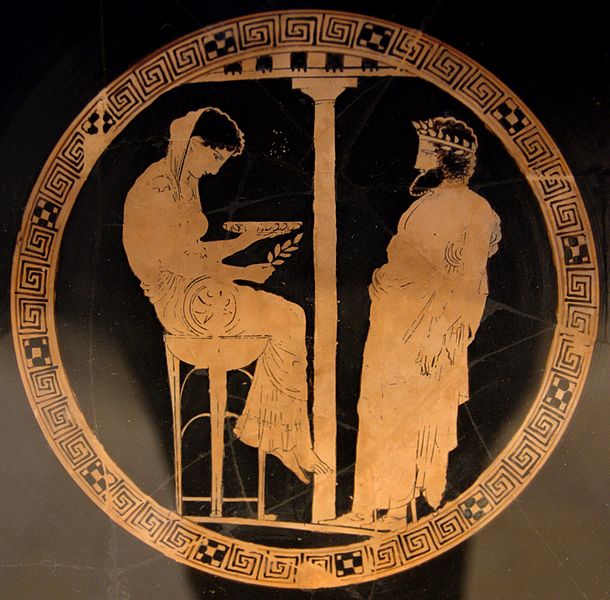[Source: Wikimedia Commons]
The people who came to the Pythia were not asking for nebulous predictions of the future. They generally had specific questions about what they should or should not do. Should we set up a settlement in a particular place? Should I make war on this or that group of people? These were some of the most common sorts of questions.
[Source: Wikimedia Commons]
The other debate is more hotly contested. The original excavations led to the widely accepted idea that the prophecies could have no connection to hallucinogenic gasses because there was no source for them. This was proven wrong when geologists discovered two different faults that intersect under the ruins of the Temple of Apollo at Delphi. These could easily have released ethylene, which has been known to cause trance states, up into the Temple. Ethylene, however, does not cause one to speak in gibberish, nor do the ancient sources give any support for this theory. The Pythia spoke in her own voice.
*It wasn’t, however, the only one. Other important Greek oracles include the shrine to Dione (who is also identified with Rhea and Gaia) and Zeus at Dodona, the shrine to Trophonius at Lebadaea in Boeotia, and several others at various shrines to Apollo.
**It makes one wonder how many people drew a connection or parallel with Demeter here.
The Pythia - Priestess of Ancient Delphi - Ancient History Encyclopedia
Pythia - Wikipedia
List of oracular statements from Delphi - Wikipedia
The Oracle of Delphi--Was She Really Stoned? - Biblical Archaeology Society
Delphic Oracle's Lips May Have Been Loosened by Gas Vapors - National Geographic


 RSS Feed
RSS Feed
